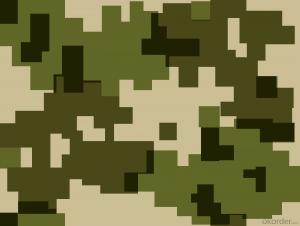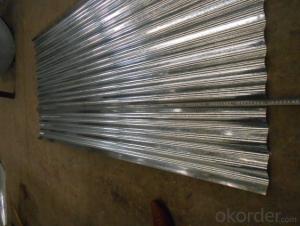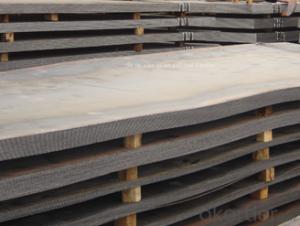color bond surface coating steel plate--XY023
- Loading Port:
- China Main Port
- Payment Terms:
- TT OR LC
- Min Order Qty:
- -
- Supply Capability:
- -
OKorder Service Pledge
OKorder Financial Service
You Might Also Like
Color bond surface coating steel plate :
more than ten years experiences, the products are sold to the domestic city and some international cities we strivc to develop production of color coating steel plate the plating (aluminum )zinc steel. Coil cheickness between 0.6mm and 1.5mm and the width from 600mm to 1250mm and a variety of high durability of color coating steel plate.
the company has multiple layer patterns for customers to choose The company provides products deep processing services ,meet the various needs of customers on board specifications All of out products comply with international quality standards and are greatly appreciated in a variety of different markets throughout the world if you ate interested in any of our products or would like to discuss a custom order please feel free to contact us we are looking forward to forming successful business relationships with new clients around the world in the near future.
We can design the color and thickness according to customers' requirements. The delivery time is only 30 day after you confirm the order.
- Q:Can steel sheets be used for structural purposes?
- Yes, steel sheets can be used for structural purposes. Steel sheets are strong, durable, and have high load-bearing capacity, making them suitable for various structural applications such as roofing, flooring, walls, and supports in buildings, bridges, and other structures.
- Q:Are steel sheets suitable for roofing systems?
- Yes, steel sheets are suitable for roofing systems. They are durable, long-lasting, and resistant to various weather conditions, making them an ideal choice for protecting buildings from the elements. Additionally, steel sheets are lightweight, easy to install, and require minimal maintenance, making them a cost-effective option for roofing systems.
- Q:Can steel sheets be used for insulation in buildings?
- Steel sheets are not suitable for insulation in buildings because they have high thermal conductivity. This characteristic permits the easy transfer of heat and cold. Conversely, insulation materials like fiberglass, mineral wool, foam board, or cellulose are specifically designed to hinder the transfer of heat, cold, or sound. These materials are commonly employed in buildings as they possess low thermal conductivity and efficiently minimize heat loss or gain.
- Q:Do the steel sheets have any specific fire ratings?
- Yes, steel sheets often have specific fire ratings due to their inherent fire-resistant properties. These ratings indicate the duration of time the steel sheet can withstand exposure to fire before it loses its structural integrity. The fire ratings are determined through rigorous testing and certification processes.
- Q:Are the steel sheets suitable for food-grade applications?
- Yes, steel sheets can be suitable for food-grade applications. Stainless steel in particular is commonly used in the food industry due to its excellent corrosion resistance, durability, and ease of cleaning. It is non-reactive and does not release any harmful substances into food, making it a safe choice for food storage, processing, and transportation. Additionally, stainless steel is resistant to high temperatures and can withstand rigorous cleaning and sanitization processes, making it ideal for use in food-grade applications. However, it is important to ensure that the steel sheets meet the necessary food-grade standards and regulations before using them in any food-related setting.
- Q:What is the average moisture resistance of steel sheets?
- The average moisture resistance of steel sheets can vary depending on the specific type of steel and its protective coatings. Generally, steel sheets have good moisture resistance due to their inherent corrosion resistance properties. However, the resistance can be further enhanced by applying various surface treatments such as galvanization, which adds a layer of zinc to protect against moisture and corrosion. In terms of specific values, it is difficult to provide an exact average moisture resistance without considering the specific steel grade, thickness, and coating. Typically, steel sheets with galvanized coatings can provide excellent moisture resistance, with some studies reporting corrosion rates as low as 0.1-0.5 micrometers per year in highly corrosive environments. It is crucial to note that the performance of steel sheets in resisting moisture can also be influenced by other factors such as the presence of scratches, cuts, or exposure to chemicals. Regular maintenance, inspection, and proper handling of steel sheets can help ensure their optimal moisture resistance over time.
- Q:Can the steel sheets be used for elevator doors?
- Yes, steel sheets can be used for elevator doors. Steel is a commonly used material for elevator doors due to its strength, durability, and fire resistance properties. Steel sheets can be fabricated and designed to fit the specific dimensions and requirements of elevator doors, providing a secure and reliable closure for elevators. Additionally, steel sheets can be finished with various coatings and finishes to enhance their appearance and protect them from corrosion.
- Q:What are the dimensions of the steel sheets?
- Depending on specific requirements or intended use, the dimensions of the steel sheets may differ. Standard sizes for steel sheets are often found in dimensions like 4 feet by 8 feet or 1 meter by 2 meters. Nonetheless, customizing the dimensions of the sheets is also possible to cater to project needs. To ensure the steel sheets meet the required specifications, it is crucial to specify the desired length, width, and thickness when placing an order.
- Q:What is the difference between a brushed and polished steel sheet?
- The surface finishes of a brushed steel sheet and a polished steel sheet vary. A brushed steel sheet is distinguished by parallel lines or scratches on its surface, which are created using abrasive materials or tools. The purpose of brushing is to give the steel sheet a textured look, which helps conceal fingerprints, scratches, and signs of wear. Additionally, it provides an industrial and matte finish. On the contrary, a polished steel sheet boasts a sleek and glossy surface. Polishing involves the use of polishing compounds or abrasive materials to eliminate imperfections, scratches, and oxidation from the steel surface. This process results in a reflective and mirror-like finish, which enhances the visual appeal of the steel sheet. Polished steel sheets are often utilized in applications where appearance and visual attractiveness hold significance, such as architectural design, interior decoration, and high-end products. To summarize, the primary distinction between a brushed and polished steel sheet lies in their surface finishes. Brushed steel sheets possess a textured and matte appearance, whereas polished steel sheets exhibit a smooth and glossy, mirror-like finish. The choice between the two is contingent upon the desired aesthetic, functional requirements, and intended application of the steel sheet.
- Q:How are steel sheets transported and stored?
- Steel sheets are typically transported and stored using specialized equipment such as forklifts, cranes, or flatbed trucks. They are often stacked in neat piles or bundled together to maximize space efficiency. To prevent damage, steel sheets are usually stored in covered warehouses or outdoor storage areas with proper protection against moisture and other environmental factors.
1. Manufacturer Overview |
|
|---|---|
| Location | |
| Year Established | |
| Annual Output Value | |
| Main Markets | |
| Company Certifications | |
2. Manufacturer Certificates |
|
|---|---|
| a) Certification Name | |
| Range | |
| Reference | |
| Validity Period | |
3. Manufacturer Capability |
|
|---|---|
| a)Trade Capacity | |
| Nearest Port | |
| Export Percentage | |
| No.of Employees in Trade Department | |
| Language Spoken: | |
| b)Factory Information | |
| Factory Size: | |
| No. of Production Lines | |
| Contract Manufacturing | |
| Product Price Range | |
Send your message to us
color bond surface coating steel plate--XY023
- Loading Port:
- China Main Port
- Payment Terms:
- TT OR LC
- Min Order Qty:
- -
- Supply Capability:
- -
OKorder Service Pledge
OKorder Financial Service
Similar products
New products
Hot products
Related keywords




























